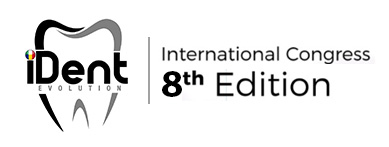Cookie Policy
This website, operated by the Association for Digital Workflow in Dentistry, defines the use of cookies, what cookies are, what data they contain, why they are important, and how they can be deleted.
- What are Cookies?
A cookie (also known as a “browser cookie” or “HTTP cookie”) is a small file that is stored on a user’s computer, mobile device, or other equipment used to access the internet. The cookie is installed through a request issued by a web server to a web browser (e.g., Internet Explorer, Chrome) and is completely “passive,” meaning it does not contain software programs, viruses, or spyware and cannot access information stored on the user’s hard drive.
Cookies are managed by web servers. The lifespan of a cookie can vary significantly, depending on the purpose for which it is placed. Some cookies are used exclusively for a single session (session cookies) and are not retained once the user leaves the website, while others are retained and reused each time the user returns to the website (‘persistent cookies’). However, cookies can be deleted by a user at any time through the browser settings.
- How are Cookies Used?
Cookie files are used exclusively by web browsers and enable the recognition of the user’s terminal and the presentation of content in the most relevant way, tailored to user preferences.
Cookies ensure users have a pleasant browsing experience and support our efforts to provide comfortable services to website users. For example, privacy preferences, shopping carts, or relevant advertising. They are also used in preparing anonymous aggregate statistics that help us understand how a user benefits from our web pages, allowing us to improve their structure and content, excluding the personal identification of the user.
Sections of content on some websites may be provided through third parties/providers (e.g., news box, video, or advertising). These third parties may also place cookies through the website and are called “third-party cookies” because they are not placed by the owner of that website. Third-party providers must also comply with applicable laws and the privacy policies of the website owner.
- What Cookies Do We Use?
Currently, we use session cookies and persistent cookies. Session cookies are temporary files that remain on the user’s device until the end of the session or the application is closed (web browser). Persistent cookies remain on the user’s device for an individually predefined period in the operating parameters of each cookie or until manually deleted by the user.
A visit to this site may place cookies for the following purposes:
- Site performance cookies (necessary for site operation)
- Visitor analysis cookies (necessary for site operation)
- Login cookies (necessary for site operation)
- Geotargeting/geolocation cookies
- Advertising cookies provided by Facebook and Google
- What Data Do Cookies Contain?
Cookies themselves do not request personal information to be used and, generally, do not individually identify internet users; they only help identify the device from which the website is accessed. Data collected through the use of cookies helps facilitate certain features for users. All information collected by cookies is encrypted in a way that makes it impossible for unauthorized persons to access it and is used in communication between the web server and the web browser, not accessed manually by users or our staff.
- Deleting Cookies
Generally, an application used to access web pages allows cookies to be saved on the device by default. These settings can be changed so that automatic administration of cookies is blocked by the web browser or the user is informed each time cookies are sent to their device. Detailed information about the possibilities and ways to manage cookies can be found in the application’s settings area (web browser). Limiting the use of cookies may affect certain functionalities of the web page.
- Why Are Cookies Important?
Cookies are one of the most important aspects at the core of the effective functioning of the Internet. They contribute to generating a browsing experience tailored to the preferences and interests of each user, making the entire browsing experience easier.
Refusing or disabling cookies is an individual right and may make certain websites impossible to use. Also, refusing or disabling cookies does not mean that you will no longer receive online advertising; it only means that the display of these messages will no longer take into account the preferences and/or interests highlighted by browsing behavior, normally collected by cookies to display content relevant to the user.
Cookies that do not require user registration or authentication through an account can have the following attributes:
- Adapting content based on user preferences—categories of products and services
- Displaying offers tailored to user interests
- Setting and displaying different filters set by the user (child protection filters for Internet content, Safe Search functions, Family Mode)
- Settings regarding limiting the number of times an ad is displayed for certain user groups or displaying prices and offers for different user groups
- Measuring and optimizing various types of content through Analytics-type services—which help monitor and confirm traffic on a website, how a user reaches a website (sources: search engines, direct traffic, from other websites, etc.), and thus improve the website for the benefit of users
- Security and Confidentiality
Cookies are not viruses. They use a plain text format that is encrypted by the web browser to prevent access by unauthorized persons. Cookies, both persistent and session, do not contain pieces of code and cannot be executed, self-run, or replicated; therefore, they cannot be considered viruses because they do not perform these functions.
However, cookies can be used for negative purposes by other malicious programs that can run on visitors’ devices because they store information about preferences and browsing history, both on a specific site and on other sites.
Many anti-spyware solutions detect and mark cookies for deletion in detection/scanning/removal procedures, a situation valid sometimes for certain antivirus programs as well.
In general, most web browsers and devices for accessing the Internet have privacy systems and settings regarding different levels of security and acceptance of cookies, as well as their validity, automatic deletion after the user has visited a specific website, or after closing the web browser.
Data protection and identity protection are essential and represent a legitimate right of each internet user. It is recommended that each user be aware of the potential issues that cookies can create because they send information in both directions, between the browser and the website.
If an attacker or an unauthorized person intervenes in the communication between the browser and the website, data can be intercepted. This can






